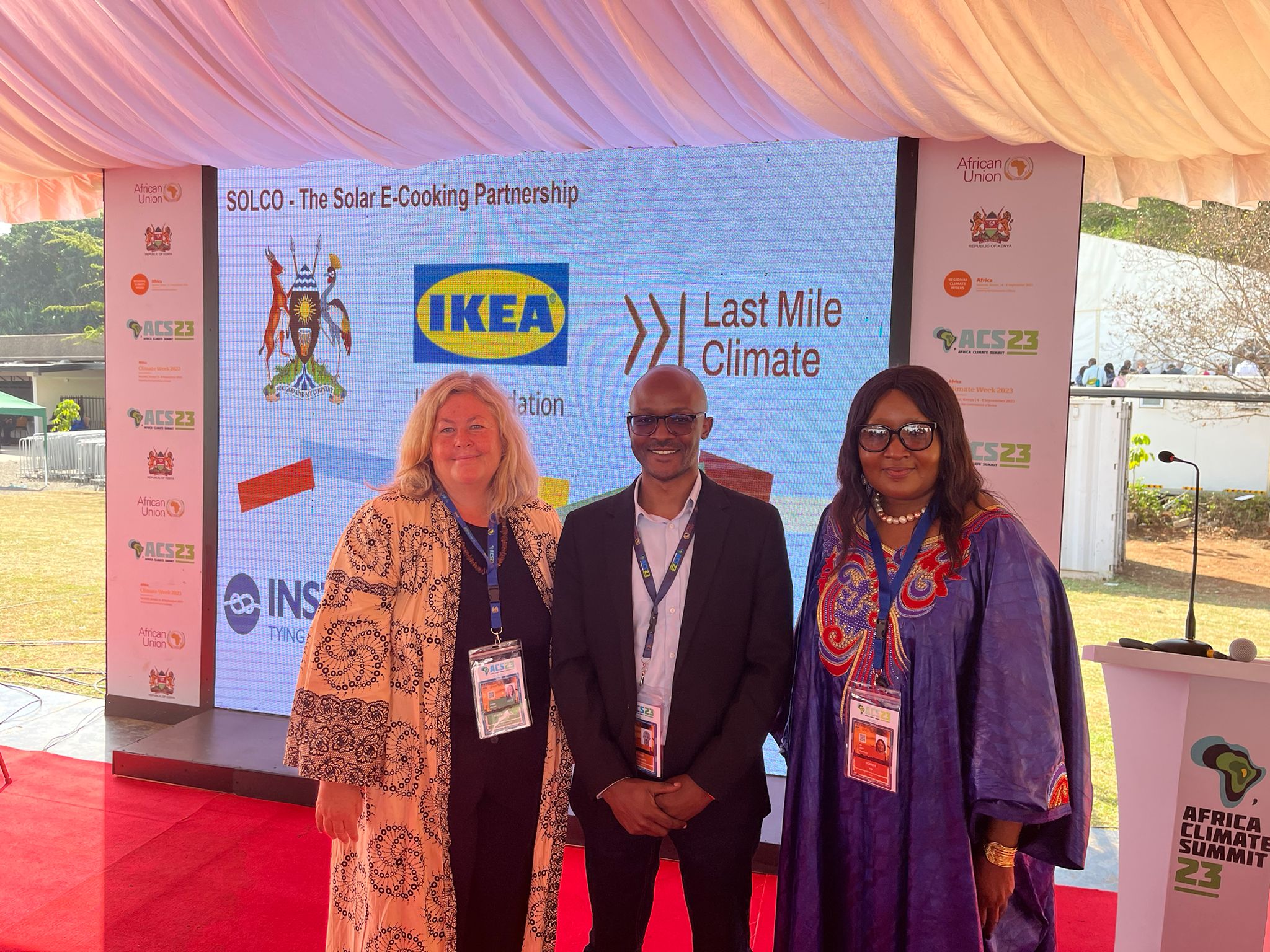Around the world, and especially in low and middle income countries, displaced people are feeling the effects of climate change.
With more than 100 million people forced to flee their homes, climate change is making an already bad situation worse.
At the Africa Climate Week, held this week in Nairobi, Kenya, UNEP brought attention to one of the ways to ensure a more sustainable future for displaced people.
Focusing on clean cooking, an ‘Action Hub’ event on “Solar-Electric Cooking Partnerships: Transitioning households across refugee-hosting countries in Africa by 2027”, highlighted how cooking with solar PV power not only addresses humanitarian needs, but also the causes and effects of climate change and ecosystem degradation.
The Solar-Electric Cooking Partnership is one of three multi-stakeholder partnerships being developed by the Climate Action at the Last Mile: policy and partnerships for sustainability in displacement settings, implemented by UNEP Copenhagen Climate Centre, Last Mile Climate and the GPA.
The event featured interventions from the director for UNEP’s Regional Office for Africa, Rose Mwebaza, and Innocent Tshilombo, Partnership Officer for Last Mile Climate as well as Louise Olivier, Climate Change Programme Manager for the Ikea Foundation.
Rose Mwebaza highlighted that for UNEP and especially for the Regional Office for Africa, the issue of energy in situations of displacement is something the organization follows closely, and added that she was very proud to be associated with the work done by UNEP Copenhagen Climate Centre.
A sustainable future for some of the most vulnerable
Household air pollution, largely coming from cooking with open fires, was responsible for an around 3.2 million deaths in 2020, including over 237.000 deaths of children under the age of 5, according to the WHO.
In Africa, clean cooking remains a pressing challenge, including for displaced populations and their host communities. The potential of solar electric cooking offers a pathway to a sustainable future, by not only reducing emissions and deforestation from cooking, but also improving health and livelihoods for some of the most vulnerable populations on our planet.
The Climate Action at the Last Mile project convenes stakeholders from across the climate, sustainable energy, development, and humanitarian communities to drive forward new progressive action on addressing the climate crisis in displacement settings.
At the event, Innocent Tshilombo elaborated on how the new partnership will work to make sure access to electric cooking is available to as many as possible:
“The technology can vary depending on the approach and innovations and the opportunities in specific areas, but we will support initiatives that enable more and more leverage of these technologies among displaced people or poor families.”
He also encouraged interested stakeholders from governments and private sector to join the partnership at the Global Refugee Forum in December.
Through the Solar-Electric Cooking Partnership, the Climate Action at the Last Mile project is building a multi-stakeholder coalition to create and expand the market for this game-changing category of technologies by enabling investment to create affordable access to households in off-grid refugee settlements and host communities. Co-pledgers include the Government of Uganda, UNHCR, WFP and Instiglio.
The partnership is funded by the IKEA Foundation, and Louise Olivier, Climate Change Programme Manager, elaborated on why the Foundation chose to support this Initiative.
“When this proposal came to us, it spoke to us in so many ways. It was looking at effective and scalable multilateral partnerships with energy solutions for displaced people and their hosts,” she said, adding that the IKEA Foundation hoped that this project would be the start of a long-term relationship.
Concrete recommendations for climate policy
The issues facing displaced people when it comes to access to sustainable energy, and proposed solutions, are discussed in a Policy Brief on “Integrating displaced populations into national climate change policy and planning” published by UNEP in September 2023 in partnership with IOM, the NDC Partnership and the GPA.
At the Africa Climate Week event, the main policy recommendations from this brief were presented by Rose Mwebaza.
She highlighted the importance of inter-Agency and inter-Ministerial collaboration to address a growing challenge but also the significant development and job creation opportunities that exist in the transition from biomass to modern energy cooking services. For refugee communities she underlined the importance of cash-based interventions and the right to work, to enable local business and consumers to be part of the market economy.
The policy brief is an output of the NDC Action Project which supports 10 countries, including Bangladesh, Colombia, Jordan and Uganda, home to significant populations of long‑term displaced.
